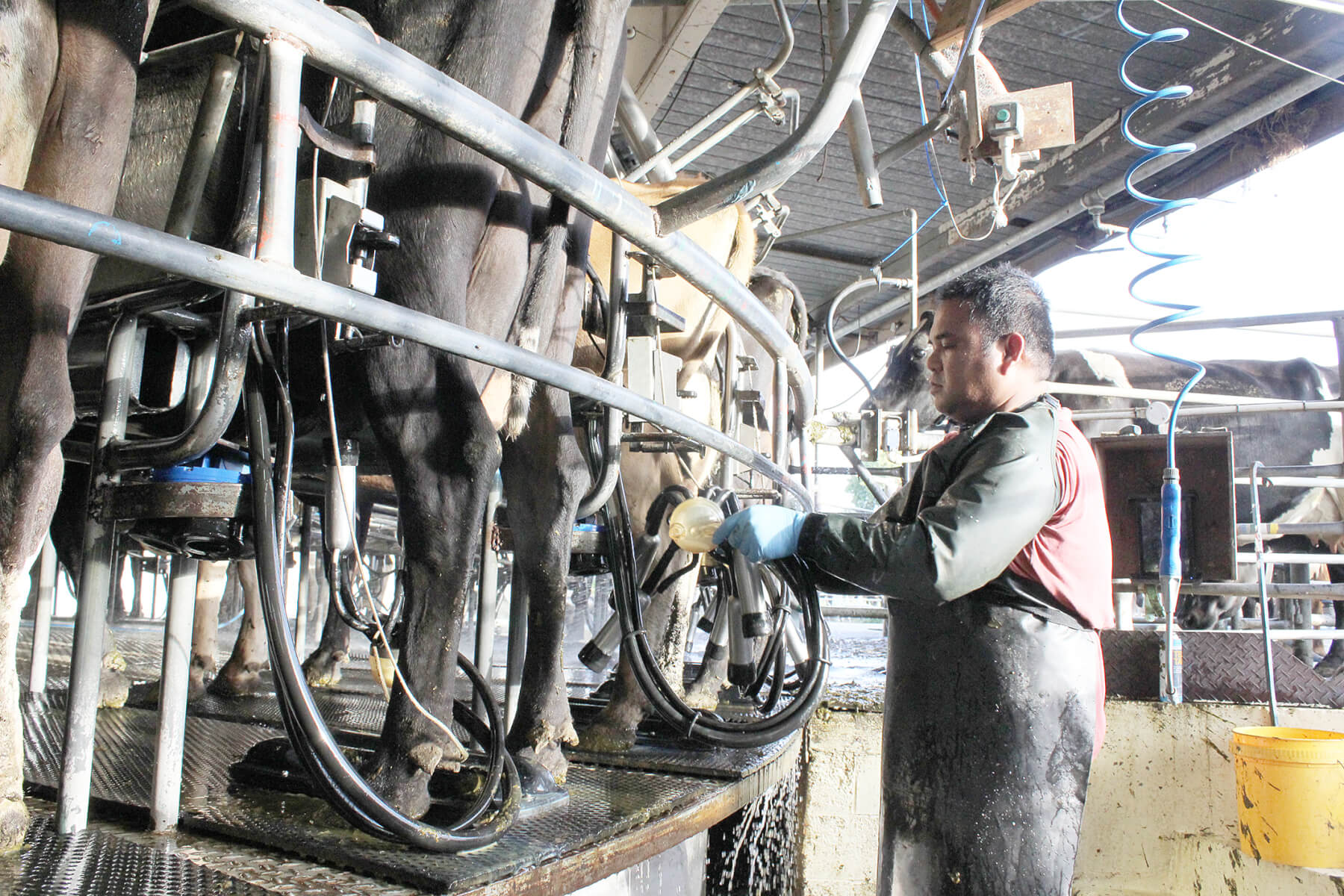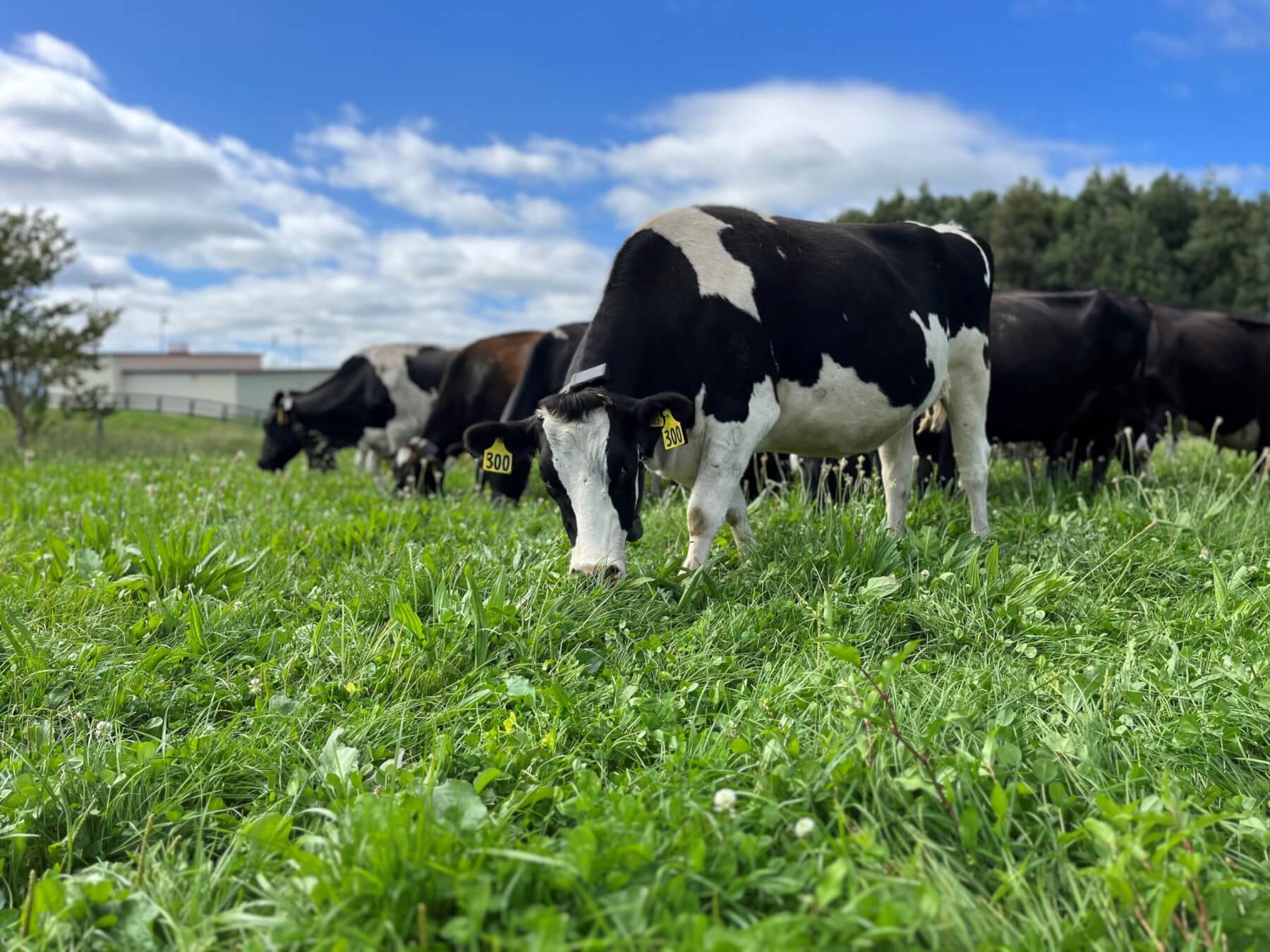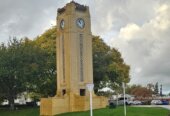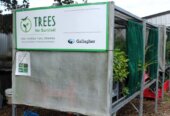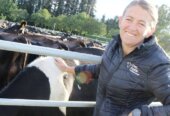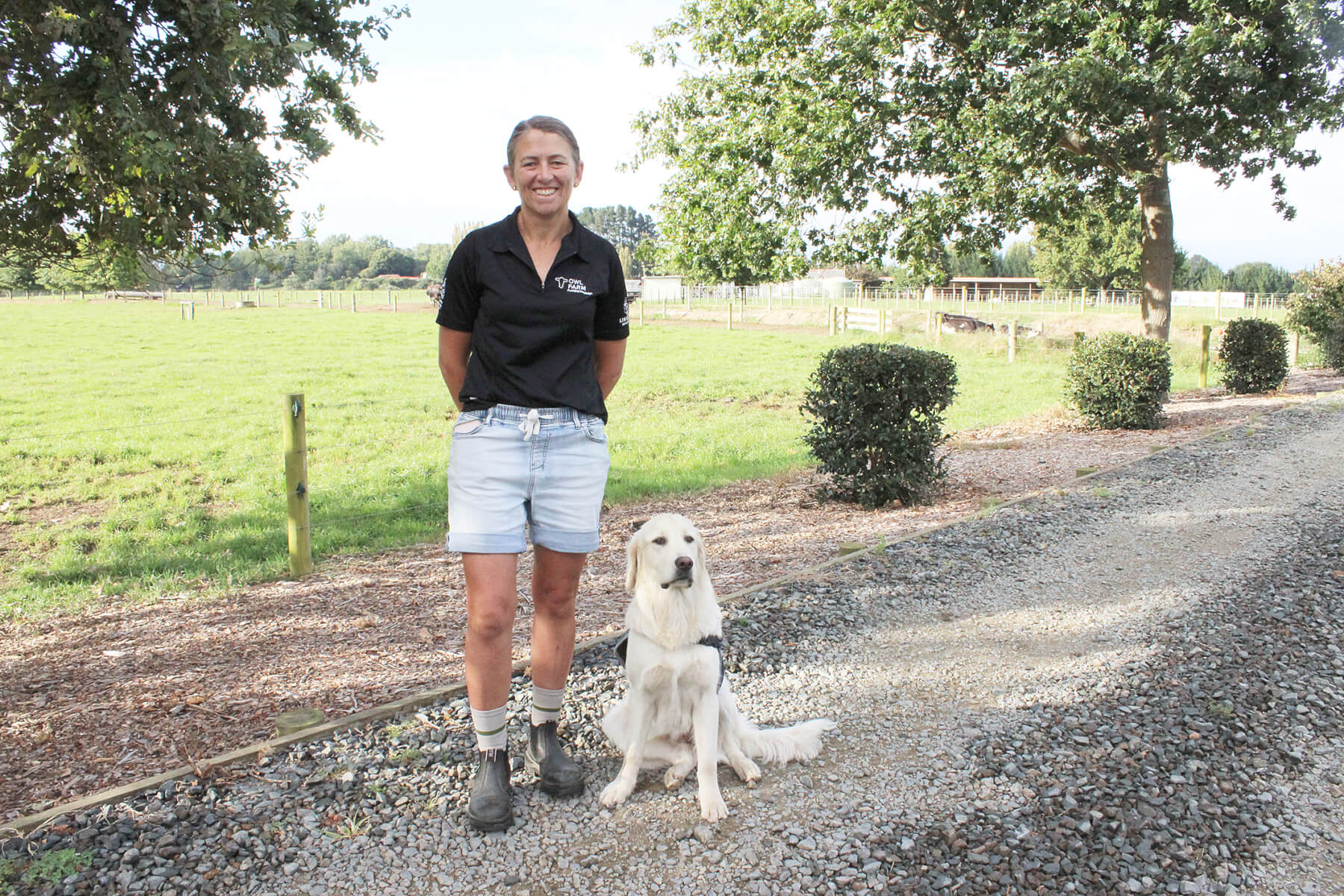
Owl Farm demonstration manager Jo Sheridan of Pirongia with farm hostess Emjay, a six-month-old labrador. Photo: Mary Anne Gill
Forty per cent of the people who attend an Owl Farm public open day at St Peter’s School in Cambridge have never been on a dairy farm in their lives.
And Jo Sheridan revels in the challenge those newbies present for her and the property, which in recent years has become one of only three demonstration farms in New Zealand.
More than 2000 visitors come through the gates every year and continue down the drive, past the school, and onto the dairy farm. They come from all walks of life – students from primary up to university, other dairy farmers and townies.
It is the public day which really gives the farm’s demonstration manager a golden opportunity to educate people about what happens on a working dairy farm.
There has been a farm at St Peter’s since 1935 – a mixture of dry stock, dairy cows, sheep, hens and pigs – with profits ploughed into the development of the school. During World War II, half the milk produced at the school provided town milk to Cambridge.
But it was an agreement struck between Lincoln University and the school in 2014 which created the Owl Farm demonstration dairy farm and a role to educate the public which has taken it to another level.
Part of the farm to the east, poorer production land, has recently been taken over for housing development leaving Sheridan and farm manager Tony Alarca with 140ha and 351 cows to look after on the rest of the highly productive land.
The cows – a cross between Holstein-Friesian and Jersey known as KiwiCross – are split into two herds allowing Owl Farm to take better care of the ones whose body condition scores have dipped.
“The girls that need to put on a bit more weight are in a separate herd and they get fed extra feed,” says Sheridan.
One cow is an exception. Frankie, number 300, is a maiden heifer. She missed going into calf last year but she has such a personality, staff opted to keep her in the herd without a calf or any lactation. She accompanies the herd to the milking shed and back into the paddocks. Sheridan hastens to add they hope she will get into calf this year.
Most Owl Farm cows weigh about 480kgs, and each produces about 440 kilograms of milk solids a year, or about 28-32 litres of milk a day. The cows produced 175,000 kgs/milk solids last year (June 2021-May 2022) but the land loss for housing means that will be about 160,000 this year.
In a normal year, the cows would have chewed their way through a brassica diet of turnips and kale and be onto the silage.
But because of the wet spring and summer – Sheridan says they have had 1300mls of rain in nine months, usually the total amount for the year – they have been able to grow more grass and keep the silage in storage.
Recent pasture samples showed grass in the paddocks is of spring quality rather than the parched pasture seen at this time of the year.
Eighteen months ago the farm invested in a system called Halter, ergonomically designed smart collars for cows which monitors them for signs of ill health and provides them with cues to understand and respond to sound and vibrations.
Sheridan rates the technology pointing to the half an hour a day it has saved them. They no longer have to shift cows around the farm using motorbikes, electric fencing, gates and dogs. Virtual fencing has replaced that and they monitor the cows using iPhones.
The technology will be on show during the public open day and if it is anything like others, it will be the young people who will love it.
“One of the things we’ve noticed is students have got a desire to be involved with primary production,” says Sheridan.
They are the ones who ask lots of questions around animal care, how Owl Farm looks after the land and are eager to utilise technology.
But young ones are not the only ones interested. Those first-time dairy farm visitors, mostly townies, become fascinated with what they see.
“When they come onto the farm and they get to see the cows getting milked, they get to understand a little bit about how we grow our feed, how we feed our cows, how we take care of the land, all the different things about the milk product and all that sort of stuff, it opens their eye about the biological system that we’re managing.”
That is a win-win because everybody wants to preserve the natural beauty of the countryside, she says. “But it’s only naturally beautiful because farmers are farming it.” The farm has to be efficient and productive as a farm for it to maintain its beauty, says Sheridan.
“We want to have a place where people are proud of what they’re doing and they can also utilise their skills around technology and use that to create a safer workplace, a more efficient workplace and also get better outcomes for both the land and the cows.
“It’s really important that as farms we continue to grow and provide that opportunity because these kids who want to get into primary production need to have a cool place for them to get in engaged in.”



